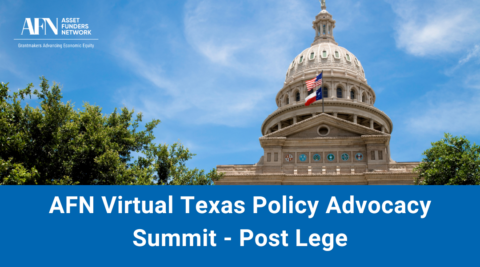Peer to Peer: Which Education Pathways Lead to Economic Mobility and Equitable Wealth Building?
What is a “high quality” postsecondary education pathway or credential, who gets to decide, and how do we know? What education, training, and apprentice program ingredients lead to real, quality jobs and employment and enable equitable wealth building? What makes those programs affordable and accessible to students of color?
Presently, there is not a working definition across philanthropy, community-based organizations, government agencies, or students about what constitutes an affordable, high-quality education pathway or credential. Absent a clear definition is also disparate data sets connected to employment outcomes after students leave a postsecondary institution. The uncertainty not only renders it difficult for funders to make investments but also for students to make consequential life choices.
Philanthropy has an important role to play in supporting equitable postsecondary education (PSE) access, affordability, and outcomes for students of color, whose earnings and economic opportunities have been and continue to be limited by systemic racism. In collaboration with other stakeholders, grantmakers can help shape what the success of PSE programs looks like, what program ingredients matter, and how we move toward transformative change. Philanthropy can also ensure equitable outcomes by making pathways accessible, affordable, and transparent to students of color.
Please join Asset Funders Network (AFN) on Thursday, October 19, at 1:00 pm ET for a 75-minute member-only, peer-led discussion on a framework for defining and measuring impactful postsecondary education. The framework for quality programs (that are also affordable and accessible) results in a range of assets that enable wealth building: a flexible and transferable skill set; opportunities to upskill over a lifetime; increased adaptability; increased wages over the life span; access to lower cost benefits (comprehensive healthcare, retirement, life and disability insurance, paid leave); stable employment; and reduced risk of unemployment.
Together we will discuss:
- How much does the framework for defining and measuring impactful PSE resonate and how would you apply it in your education-related programming?
- What do the assets included in the framework look like in practice and supporting research?
- What strategies are you using to define and measure accessible, affordable, and high-quality PSE?
- How are you taking an equity approach to your education-related programming?
- What are the lessons and entry points for philanthropy supporting both system change and programming?
Speakers:
- Jonathan Chaparro, Executive Director, Innovation & Head of Chicago Region, Braven
- Mary Alice McCarthy, Senior Director, Center on Education & Labor, New America
_____________________________________________________________________
Peer-to-Peer: Advancing an Anti-Racist Economy is a series of member-only monthly sessions centered around AFN’s seven issue areas. Building on critical conversations from AFN’s 2022 National Grantmaker conference, these 75-minute virtual webinars will feature speakers discussing policy and programmatic advances as well as foster authentic dialogue to advance an anti-racist economy.
This session is exclusively for AFN members. Not an AFN member but interested in attending? Please visit our website or reach out to Kristin Rennels, Membership Director (kristin@assetfunders.org) to learn more about joining AFN as a member.
_____________________________________________________________________
We encourage people with disabilities to participate in the webinar. Captioning will be provided. If you have any other accessibility requests or questions, please email Kelly Daigle at kelly@assetfunders.org. Requests for reasonable accommodations must be received by October 6, 2023 to ensure our ability to meet your request.



